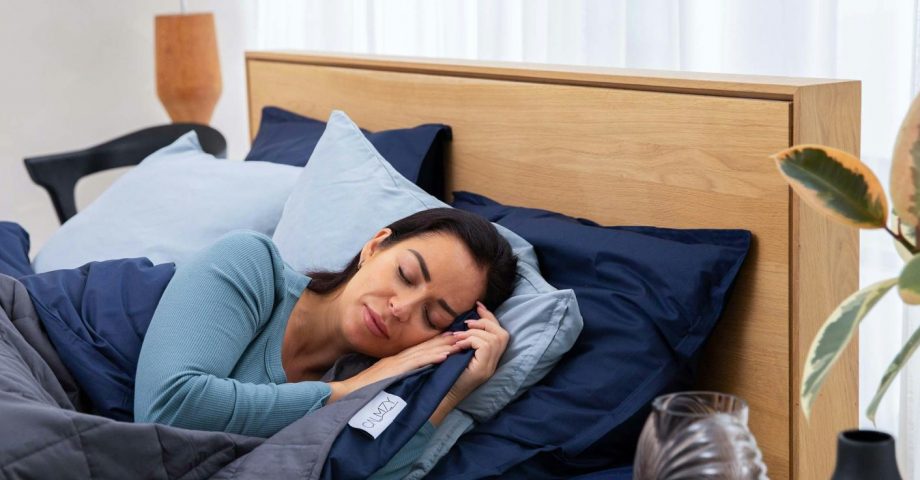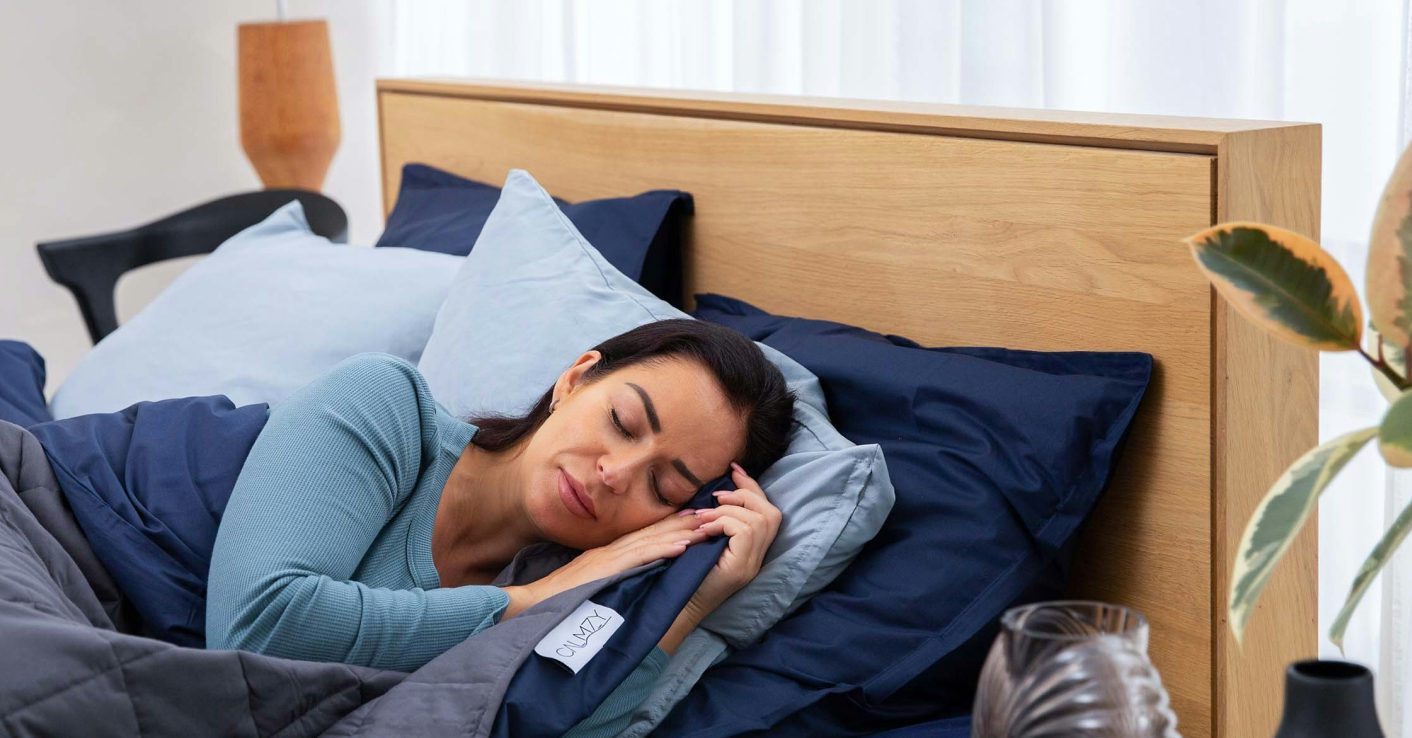Last Updated on April 29, 2025
If you’ve ever leaned on alcohol to help you fall asleep, you’ve probably found yourself wide awake and anxious around 3 a.m. at least once. Many people discover that what seems to be a sleepytime remedy quickly becomes a cycle of nightcaps, restless nights, and groggy mornings.
The good news? You can absolutely break free from the unpleasant alcohol-and-sleep cycle.
Let’s dig into why alcohol affects your sleep patterns and how to recover your natural rhythm. We’ll also go over practical steps you can start using tonight.
Watch The Related Podcast
Why Alcohol Disrupts Your Sleep
Alcohol might seem like the ultimate sleep aid: It’s a depressant that slows down your central nervous system. But beneath the surface, it’s probably causing harm.
Alcohol disrupts your REM sleep: the deep, restorative phase that leaves you feeling rested. Instead of cycling through sleep stages naturally, your body gets thrown off balance. Then, when the sedative effects of the alcohol wear off in the middle of the night, your brain rebounds with hyperactivity. That’s when you wake up, heart racing, struggling to fall back asleep.
You’ll also experience a surge in cortisol (that’s your stress hormone) and fluctuations in blood sugar levels after drinking, which add to that 3 a.m. restlessness. Over time, even nights without alcohol feel rough because your body is still trying to reset.
In short, falling asleep after drinking happens quickly, but staying asleep after drinking is much harder. And skipping alcohol for a night may not immediately stop sleep disruptions. The body needs more time to recalibrate.
How to Improve Your Sleep Without Alcohol
You don’t have to choose between a drink and a good night’s sleep. By making some practical adjustments, you can achieve better sleep and a healthier relationship with alcohol. Win-win.
Some strategies to try:
1. Be Mindful of How Much You Drink
After one drink, every additional drink can reduce your sleep quality by about 20%. You already know the fix for this one: keeping your intake to one or two drinks and avoiding binge drinking.
2. Set a Cutoff Time
Stop drinking at least three to four hours before bedtime. This gives your body enough time to metabolize the drinks, helping you stay asleep.
3. Stay Hydrated and Replenish Nutrients
Alcohol is dehydrating. (If you’ve ever been hung over, you know this.) It can also drain your body of essential minerals like magnesium. Drinking water alongside alcohol and supplementing with magnesium glycinate (one of the most bioavailable forms) before bed can help calm your nervous system.
4. Create a Sleep-Friendly Environment
Optimize your sleep space, even and especially on nights you’re not drinking:
- Install blackout curtains.
- Keep the room cool. (Around 65 degrees Fahrenheit is ideal.)
- Try using a white noise machine.
- Stick to consistent bedtime and wake-up times. Yes, even on the weekends.
5. Limit Evening Screen Time and Bright Light
Exposing your eyes to bright screens or overhead light before bed can delay melatonin production, making it harder to wind down. Try:
- Turning off devices an hour before bedtime.
- Using softer, warmer lighting in the evenings.
- Brushing your teeth earlier. This way, you’re not blasting bathroom light into your eyes right before you go to sleep.
It might sound a little too easy, but adjusting your evening light exposure can dramatically improve your sleep quality.
6. Use Meditation or Sleep Apps
If you wake up during the night and find your mind racing, guided meditation can help. Apps like Slumber or Calm house soothing bedtime stories and meditations designed to quiet the mind and help you fall back asleep.
Breaking the Alcohol Sleep Cycle
It’s easy to fall into thinking that you “can’t sleep without alcohol,” but the truth is, alcohol is often the problem, not the solution. With patience, your body can restore its natural sleep patterns, and you’ll wake up each morning feeling actually rested. (You’ll be able to tell the difference.)
If your sleep has been suffering, give yourself a break from alcohol for a few nights or even a few weeks. Allow your system time to reset. When you do reintroduce drinking, keep it mindful: lower amounts, early cutoffs, and mindful nighttime routines.
Your sleep—and your future self—will thank you. Get started on your journey with a 15-day free trial of Sunnyside.




